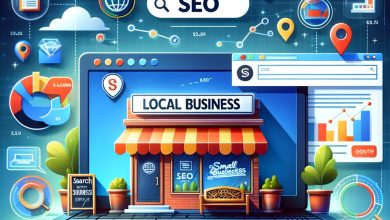Boost Your Hotel’s Online Visibility with These SEO Techniques

Let’s be real, the hotel industry in Australia is tough. Between international chains, quirky boutique stays, and the ever-growing Airbnb scene, competition is everywhere. If your hotel isn’t showing up on Google when someone searches for places to stay in your town, you might as well be invisible.
I’ve worked with several hotels across Australia from Byron Bay to Perth and if there’s one thing I’ve learned, it’s that SEO for hotels isn’t just some fancy digital buzzword. It’s absolutely critical if you want people to find your place online, especially those travellers who don’t know you exist yet.
So, if you’re wondering how to get your hotel in front of more eyeballs (without paying massive commissions to booking platforms), here are some SEO techniques that actually work and yes, they’re beginner-friendly.
Start with Local SEO Seriously, Don’t Skip This
First off, if you’re not tapping into local SEO, you’re doing yourself a disservice. Australians love travelling within their own country, and international tourists always Google “where to stay in [insert city].”
If someone’s searching for “best boutique hotel near Bondi Beach” and you’re actually near Bondi but you don’t show up, that’s a missed opportunity.
Claim your Google Business Profile (if you haven’t already), and keep it updated with correct details, photos, and your website link. Encourage past guests to leave reviews on Google, not just on TripAdvisor. Google reviews can seriously improve where you land in search results.
Also, get listed in local Australian directories like Yellow Pages or True Local. Yes, people still use them and Google pays attention to these listings when ranking businesses.
Think Like Your Guests When Choosing Keywords
One mistake I often see? Hotels using super generic keywords like “luxury hotel Sydney.” Mate, you’re never beating the big chains for that one they’ve got entire SEO teams behind them.
Instead, get specific. Think about what people actually search for:
- “Pet-friendly hotels in Hobart”
- “Affordable stays near Gold Coast theme parks”
- “Wine region accommodation Barossa Valley”
Jot down what your guests ask you about most often that’s your goldmine for keyword ideas. Then sprinkle these naturally throughout your site content, your page titles, and blog posts.
Write Stuff People Actually Want to Read
Blogging isn’t dead far from it. But please, don’t write just for the sake of SEO. Write because you have something useful to share.
Let’s say you run a lodge near the Daintree Rainforest. Why not write a blog titled “What to Pack for a Trip to the Daintree Rainforest”? Or if you’re in Melbourne, create a guide to “Best Coffee Spots Near Fitzroy Accommodation.”
People planning trips love reading this kind of content, and Google rewards websites that answer questions and provide value. Plus, it positions you as a local seo expert, not just another room-for-rent.
Your Website Needs to Work on Mobile
Most Aussies (and tourists, for that matter) search for accommodation on their phones. If your site isn’t mobile-friendly, loads slowly, or looks like it’s from 2008, people will bounce faster than a kangaroo on a trampoline.
I tested hotel sites that take more than 10 seconds to load – Trust me, no one is waiting so long. Make sure your site is fast, easy to browse and reserving a room is simple, be someone on a phone, tablet or laptop.
Don’t Ignore the Technical Bits
I get it technical SEO sounds boring. But having a secure website (with HTTPS), fixing broken links, and making sure your images aren’t massive files that slow things down? That stuff matters.
There are free tools like GTmetrix or Google PageSpeed Insights that can tell you if your site is dragging its feet. If tech isn’t your thing, hire someone local who can clean it up for you. It’s a small investment that makes a big difference.
Reviews Are Your Best Friend
Have you booked a hotel without checking the reviews first? Neither do I. And Google looks the same. The more criticism (genuine) you have on Google, the greater your chances of classifying in local research.
Pro tip: Don’t just rely on automated review requests. When a guest checks out and mentions they had a great stay, ask them personally if they’d leave a Google review. That personal touch works wonders.
Backlinks Still Important, Still Underrated
Backlinks, meaning other websites linking to yours, are still a big deal in SEO land. But don’t fall for spammy offers that promise hundreds of links that can actually hurt you.
Instead, build relationships. Get featured on Australian travel blogs, collaborate with local tour operators, or even sponsor a community event that gets you a link on the council’s website.
It’s all about credibility – if respectable sites bind to you, Google sees you as most reliable.
Keep an Eye on the Data
After starting to make changes, track what is working. Google Analytics may seem intimidating at first, but it says where your site traffic comes from, how long people get and which pages get the most love.
You’ll start to see patterns. Maybe your blog about “Winter in the Blue Mountains” is pulling loads of traffic. Great! Write more seasonal content.
Final Thoughts
Look, the SEO for Real estate is not a magic wand – it’s a continuous process. But it works. The hotels I helped in Australia had real results: more direct reservations, less confidence in Booking.com (and its thick commissions) and better visibility of the brand.
Let’s start with the fundamentals:
- Make your Google Business profile better.
- Write valuable, locally-focused content
- Make your website mobile-friendly and fast
Once that’s done, tackle the technical stuff and build a few good backlinks.
If you’re not confident doing it yourself, hire someone who knows the Aussie market and tourism industry. There are plenty of skilled freelancers and small agencies out there who can help without charging an arm and a leg.
At the end of the day, it’s about making sure when someone searches for a place to stay in your town or city, your hotel is the one they find first.




